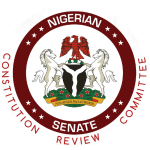Section 270 Establishment of a High Court for each State.
(1) There shall be a High Court for each State of the Federation.
(2) The High Court of a State shall consist of –
(a) a Chief Judge of the State; and
(b) such number of Judges of the High Court as may be prescribed by a Law of the House of Assembly of the State.
Section 271. Appointment of Chief Judge and Judges of the High Court of a State.
(1) The appointment of a person to the office of Chief Judge of a State shall be made by the Governor of the State on the recommendation of the National Judicial Council subject to confirmation of the appointment by the House of Assembly of the State.
(2) The appointment of a person to the office of a Judge of a High Court of a State shall be made by the Governor of the State acting on the recommendation of the National Judicial Council.
(3) A person shall not be qualified to hold office of a Judge of a High Court of a State unless he is qualified to practice as a legal practitioner in Nigeria and has been so qualified for a period of not less than ten years.
(4) If the office of Chief Judge of a State is vacant or if the person holding the office is for any person unable to perform the functions of the office, then until a person has been appointed to and has assumed the functions of that office, or until the person holding the office has resumed those functions, the Governor of the State shall appoint the most senior Judge of the High Court to perform those functions.
(5) Except on the recommendation of the National Judicial Council an appointment pursuant to subsection (4) of this section shall cease to have effect after expiration of three months from the date of such appointment and the Governor shall not re-appoint a person whose appointment has lapsed.
Section 272 Jurisdiction.
(1) Subject to the provisions of section 251 and other provisions of this Constitution, the High Court of a State shall have jurisdiction to hear and determine any civil proceedings in which the existence or extent of a legal right, power, duty, liability, privilege, interest, obligation or claim is in issue or to hear and determine any criminal proceedings involving or relating to any penalty, forfeiture, punishment or other liability in respect of an offence committed by any person.
(2) The reference to civil or criminal proceedings in this section includes a reference to the proceedings which originate in the High Court of a State and those which are brought before the High Court to be dealt with by the court in the exercise of its appellate or supervisory jurisdiction.
Section 273. Constitution.
For the purpose of exercising any jurisdiction conferred upon it under this Constitution or any law, a High court of a State shall be duly constituted if it consists of at least one Judge of that Court.
Section 274. Practice and Procedure
Subject to the provisions of any law made by the House of Assembly of a State, the Chief Judge of a State may make rules for regulating the practice and procedure of the High Court of the State.
Section 275. Establishment of Sharia Court of Appeal.
(1) There shall be for any State that requires it a Sharia Court of Appeal for that State.
(2) The Sharia Court of Appeal of the State shall consist of –
(a) A Grandi Kadi of the Sharia Court of Appeal; and
(b) such member of Kadi of the Sharia Court of Appeal as may be prescribed by the House of Assembly of the State.
Section 276. Appointment of Grand Kadi and Kadis of the Sharia Court of Appeal of a State.
(1) The appointment of a person to the office of the Grandi Kadi of the Sharia Court of Appeal of a State shall be made by the Governor of the State on the recommendation of the National Judicial Council, subject to confirmation of such appointment by the House of Assembly of the State.
(2) The appointment of a person to the office of a Kadi of the Sharia Court of Appeal of a State shall be made by the Governor of the State on the recommendation of the National Judicial Council.
(3) A person shall not be qualified to hold office as a Kadi of the Sharia Court of Appeal of a State unless –
(a) he is a legal practitioner in Nigeria and has been so qualified for a period of not less than ten years and has obtained a recognised qualification in Islamic law from an institution acceptable to the National Judicial Council; or
(b) he has attended and has obtained a recognised qualification in Islamic law from an institution approved by the National Judicial council and has held the qualification for a period of not less than ten years; and
(i) he either has considerable experience in the practice of Islamic law, or
(ii) he is a distinguished scholar of Islamic law.
(4) If the office of the Grandi Kadi of the Sharia Court of Appeal of a State is vacant or if a person holding the office is for any reason unable to perform the function of the office, then until a person has been appointed to and has assumed the function s of that office, or until the person holding the office has resumed those functions, the Governor of the State shall appoint the most senior Kadi of the Sharia Court of Appeal of the State to perform those functions.
(5) Except on the recommendation of the National Judicial Council, an appointment pursuant to subsection (4) of this section shall cease to have effect after the expiration of three months from the date of such appointment, and the Governor shall not re-appoint a person whose appointment has lapsed.
Section 278. Constitution.
(1) The sharia Court of Appeal of a State shall, in addition to such other jurisdiction as may be conferred upon it by the law of the State, exercise such appellate and supervisory jurisdiction in civil proceedings involving questions of Islamic personal Law which the court is competent to decide in accordance with the provisions of subsection (2) of this section.
(2) For the purposes of subsection (1) of this section, the sharia Court of Appeal shall be competent to decide –
(a) any question of Islamic personal Law regarding a marriage concluded in accordance with that Law, including a question relating to the validity or dissolution of such a marriage or a question that depends on such a marriage and relating to family relationship or the guardianship of an infant;
(b) where all the parties to the proceedings are muslims, any question of Islamic personal Law regarding a marriage, including the validity or dissolution of that marriage, or regarding family relationship, a founding or the guarding of an infant;
(c) any question of Islamic personal Law regarding a wakf, gift, will or succession where the endower, donor, testator or deceased person is a muslim;
(d) any question of Islamic personal Law regarding an infant, prodigal or person of unsound mind who is a muslim or the maintenance or the guardianship of a muslim who is physically or mentally infirm; or
(e) where all the parties to the proceedings, being muslims, have requested the court that hears the case in the first instance to determine that case in accordance with Islamic personal law, any other question.
Section 279 Practice and Procedure
For the purpose of exercising any jurisdiction conferred upon it this Constitution or any law, a sharia Court of Appeal of a State shall be duly constituted if it consists of at least three kadis of that Court.
Section 279 Practice and Procedure
Subject to provisions of any made by the House of Assembly of the State, the Grand Kadi of the Sharia Court of Appeal of the state may make rules regulating the practice and procedure of the Sharia Court of Appeal.

